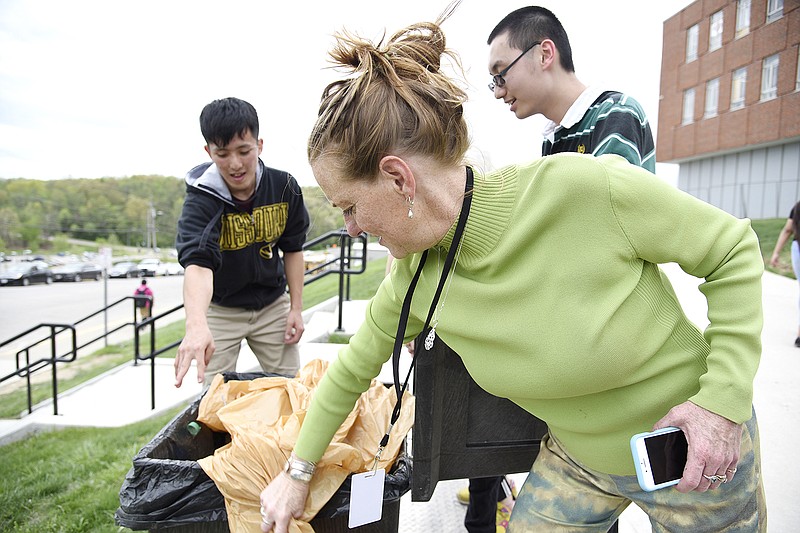Jefferson City Public Schools plans to use reusable trays and silverware across the district next school year - something that environmentally-conscious Jefferson City High School students pushed for.
On Earth Day on Monday, Melanie Fraga was outside with some of her English Speakers of Other Languages students to pick up trash.
Last month, Fraga and students in JCHS' Green Team environmental club were sorting through trash to find out how much plastic foam waste the high school produces, in an effort to push for replacing disposable plastic foam products with reusable or biodegradable alternatives.
JCPS' Director of School Nutritional Services Dana Doerhoff met with students in the Green Team's "Whiteout" anti-plastic foam use committee the next day, and Fraga said last month that the result was that reusable products were to be proposed for next year.
"We are planning to use reusable trays and silverware district-wide next school year," JCPS' Director of Communications Ryan Burns confirmed Monday.
JCPS was not able to immediately provide how much it will cost to make the switch from disposable to reusable products - the silverware used has been made of plastic - or how much money the change might save over time.
"There are no plans to implement a district-wide composting program at this time, but that is not to say that we couldn't explore that as a possibility in the future," Burns added.
The Green Team's audit of JCHS' trash last month also included a count of how much food waste the school cafeteria produced, with the vision that it could be composted in the future.
The Green Team found JCHS produced 1 cubic yard each of plastic foam and food waste in a day - multiplied over a school year, Fraga said that's 360 cubic yards, or 36 concrete mixer trucks' worth.
"This was a huge win, for everyone," Fraga, who is the faculty leader of the Green Team, wrote last month of the district's decision to switch to reusable cafeteria trays and silverware.
"A very small victory for Mother Earth, but a win nonetheless. And a win for the kids - for instilling in these young people that change can happen if you put your mind to it, and your backs," she added.

